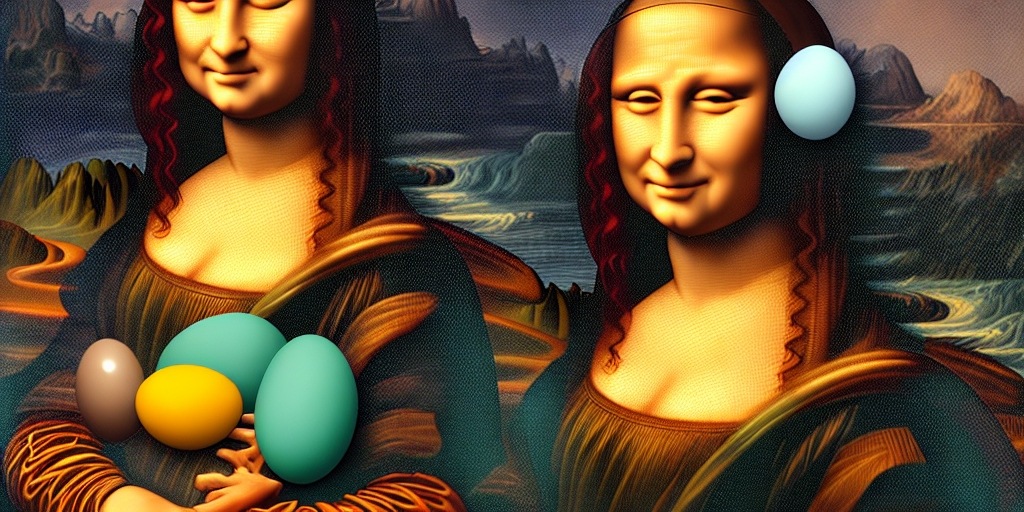https://www.cnn.com/style/article/old-masters-da-vinci-egg-yolk-painting-scn/index.html
Leonardo da Vinci painted the Mona Lisa with eggs fact

The Secret Ingredient in da Vinci’s Paintings
A study published in Nature Communications suggests that “Old Masters” such as Leonardo da Vinci, Sandro Botticelli, and Rembrandt might have used proteins, particularly egg yolk, in their oil paintings. Traces of protein residue have previously been detected in classic oil paintings, but they were often considered contamination. This new research reveals that the inclusion was likely intentional, showcasing the technical knowledge of these skilled European painters from the 16th, 17th, or early 18th centuries.
Eggs vs. Oil
Oil paint has several advantages over the ancient Egyptian tempera medium, which combines egg yolk, powdered pigments, and water. Oil paint creates more intense colors, allows smoother color transitions, and dries more slowly. However, it is also more susceptible to color darkening and damage from light exposure.
The Old Masters may have added egg yolk, a familiar ingredient, to oil paint to improve its properties. The study’s researchers recreated the paint-making process using egg yolk, distilled water, linseed oil, and pigment, mixing lead white and ultramarine blue. The egg yolk’s addition drastically changed the paint’s properties, such as slowing down oxidation due to the antioxidants in the yolk.
Evidence in Leonardo da Vinci’s Work
Leonardo da Vinci’s “Madonna of the Carnation” shows evident wrinkling on the faces, which can be associated with oil paint drying from the surface. The study found that adding egg yolk could prevent this effect, demonstrating the potential benefits of using egg yolk in oil paint. Old Masters like Leonardo likely became aware of these advantages, including increased resistance to humidity.
New Understanding of the Classics
The study also examined Botticelli’s “The Lamentation Over the Dead Christ,” which contains tempera and oil paint. The researchers detected proteins in the oil paint, suggesting that egg yolk might have been a deliberate choice. This new understanding of old painting techniques contributes to better conservation, preservation, and comprehension of art history.

BrianaClaborn Supports this as a Fact.
The mona lisa was mad of egg yolk